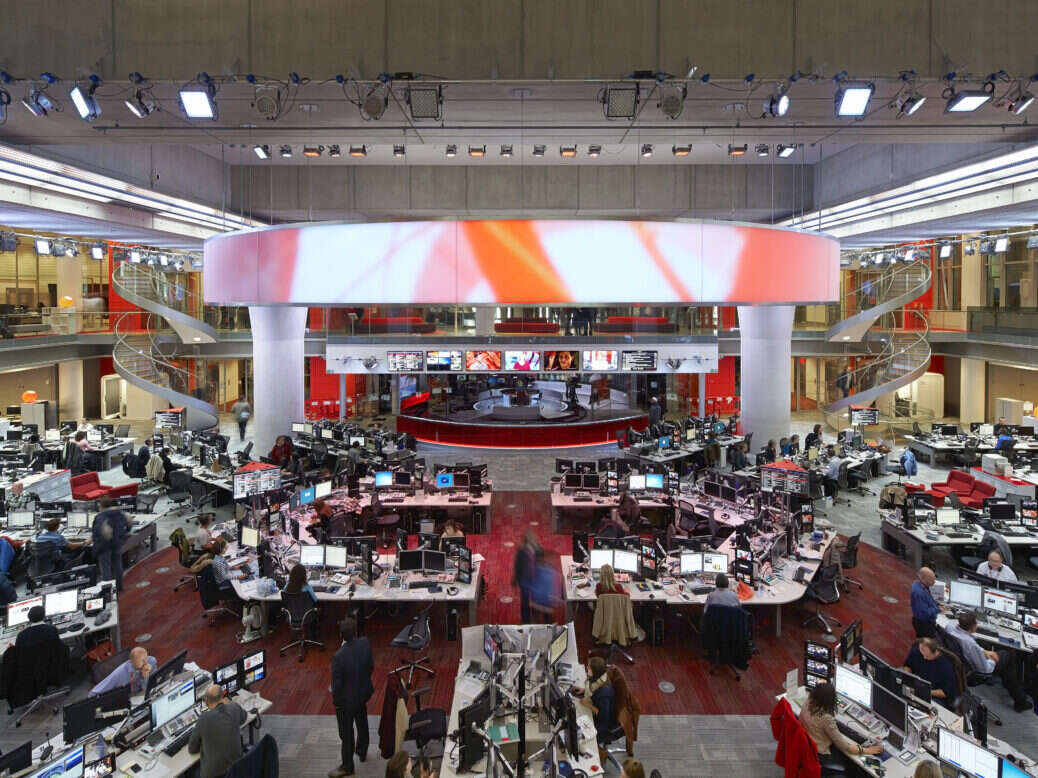
The BBC has set itself the target of making sure 25% of its staff are from disadvantaged socio-economic backgrounds by 2027.
The target, announced in the corporation’s annual plan for 2022/23 on Wednesday, accompanies news that the BBC has almost finished relocating journalists out of London.
The corporation also said it is rebranding some of its local offerings and further expanding overseas in a bid to boost commercial operations.
The BBC said that in the past 18 months it had aimed to increase the representation of women and disabled and non-white workers among its staff.
Now it has set a new target, saying: “By 2027/28 we want 25% of our staff to come from a lower socio-economic background.”
The corporation claimed the target is one of the first for a UK media organisation.
The BBC told Press Gazette that it defines socio-economic background as those whose breadwinning parent had an occupation in the low-socio economic or working-class category when they were 14.
As of data from March 2021, 20.2% of the BBC workforce currently meets this criteria, it said.
The Social Mobility Commission and academics accept this criteria “as the key determinant of socio-economic background for an individual when they were growing up”, the BBC added.
In June 2021, BBC director-general Tim Davie wrote in the organisation’s annual report that he had committed it to having an even gender split, at least 20% non-white staff and at least 12% disabled staff. At time of that report’s release, the BBC said its staff were 48.6% women, 15.9% from minority ethnic groups and 9% disabled.
Separately, the BBC said that it would this year finish moving news staff out of London. It announced a year ago that it planned to shift its journalistic centre outside London over the following six years to better represent “different voices and perspectives” from across the UK, with numerous specialist journalism teams moving to different cities.
“By September all planned BBC News teams will be transferred to their new UK bases, including Newsbeat and Asian Network news to Birmingham, and News story teams to Salford, Leeds, Glasgow and Cardiff,” the BBC said this week.
The Radio Science team will move to Cardiff by autumn, and the plan says more radio teams may be moved in the future.
As well as moving staff into the UK’s regions and nations, the BBC said it plans “to strengthen the quality, distinctiveness and consistency of our local news online services across England”, and to increase “the range of local audio content available on the BBC Sounds app, including daily news and sport content”.
These accompany a planned “programme of investment to refresh the creative look of all our regional news programmes – recognition of the continued role of the 6.30pm nations and regions bulletin as the UK’s most-watched news programme”.
Contrasting against the plan to increase local audio content on BBC Sounds, the plan also said: “Our news podcast portfolio will focus on delivering more audience impact from fewer titles.”
Outside the UK, the BBC said it would “deliver new investment in our digital news output in key markets with the addition of over 30 journalists to enhance our news analysis, data journalism and original investigations”.
Asked which markets these would be, the BBC referred Press Gazette to its January announcement that BBC Studios – the BBC’s commercial arm – would be doubling its US digital journalism team and hiring 20 new roles in the US and Canada.
In other international plans, the BBC said it would “refresh the World News TV channel” and “accelerate the digital transformation of the World Service… We will invest in improving our digital news product, enhancing the live page experience and improving video performance to provide a better experience to global audiences.”
The broadcaster also said it would complete its already-underway BBC News app rebrand, “including a more personalised service” and a greater focus on live pages.
[Read more: Pandemic puts ‘rocket boosters’ on live blogs as sites see sky-high engagement]
Picture: Hufton+Crow/View Pictures/Universal Images Group via Getty Images
Email pged@pressgazette.co.uk to point out mistakes, provide story tips or send in a letter for publication on our "Letters Page" blog
